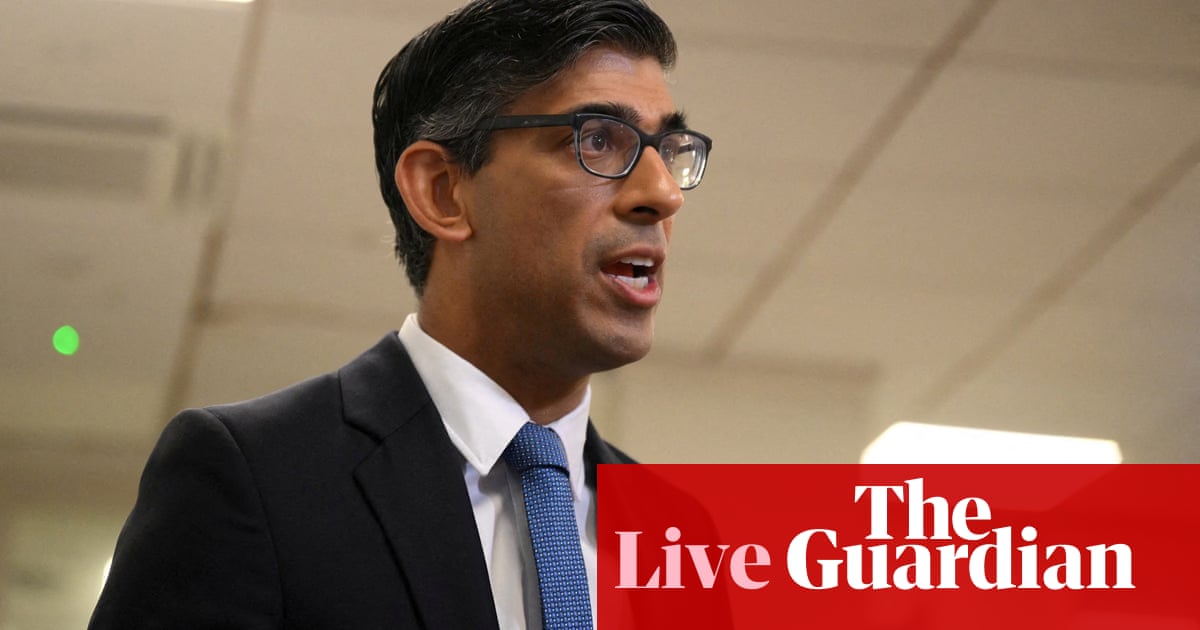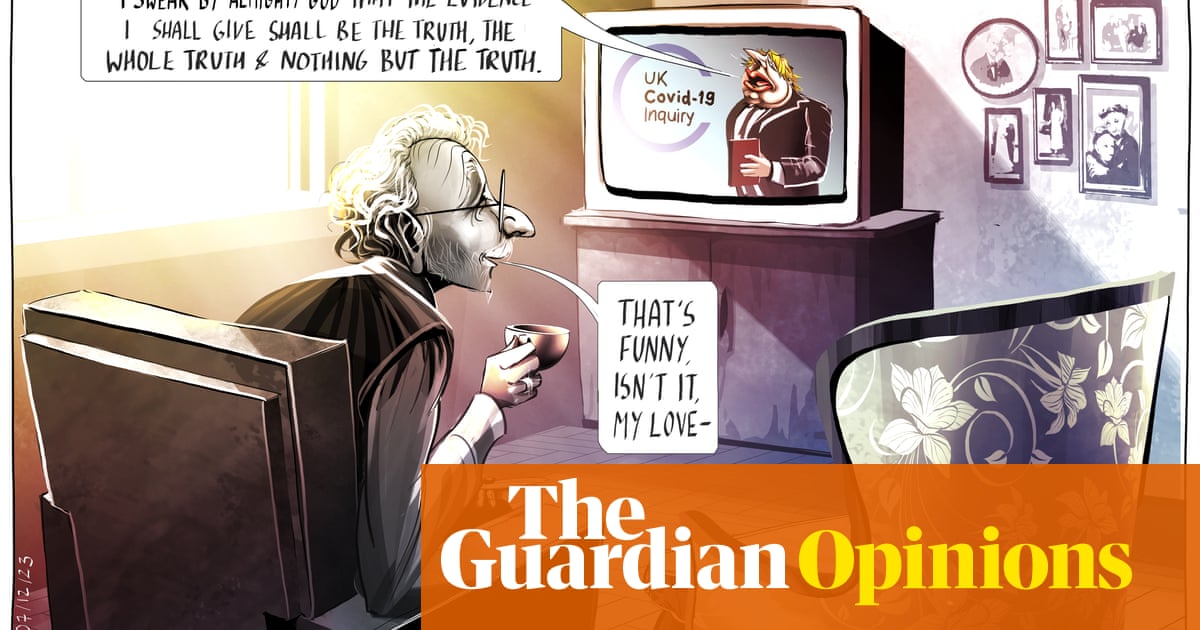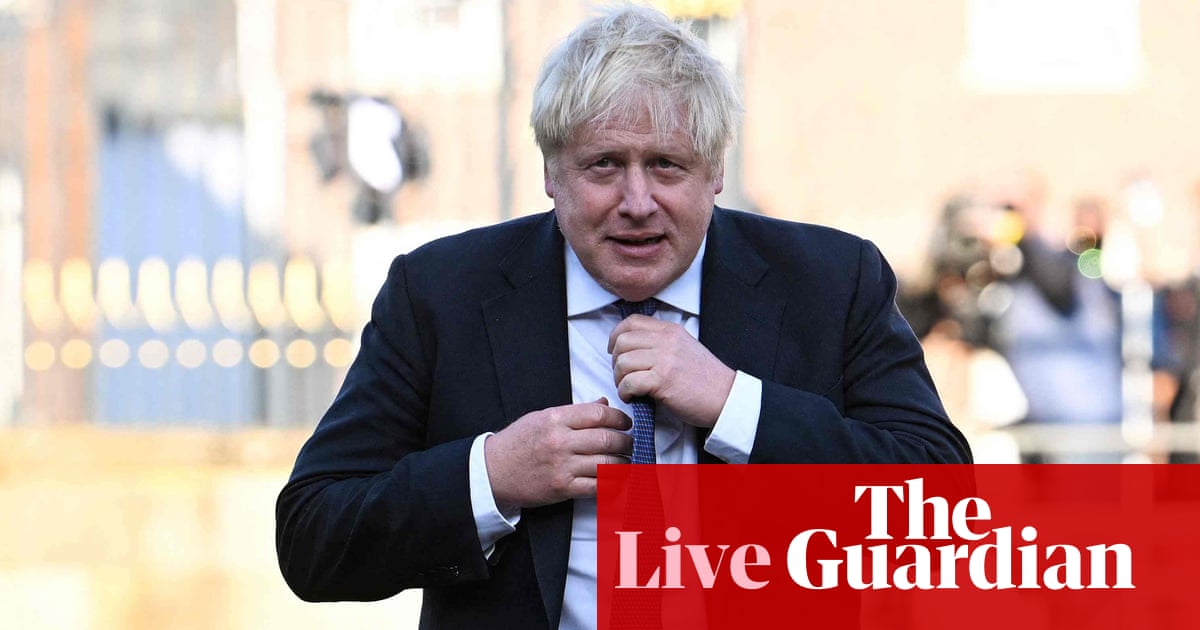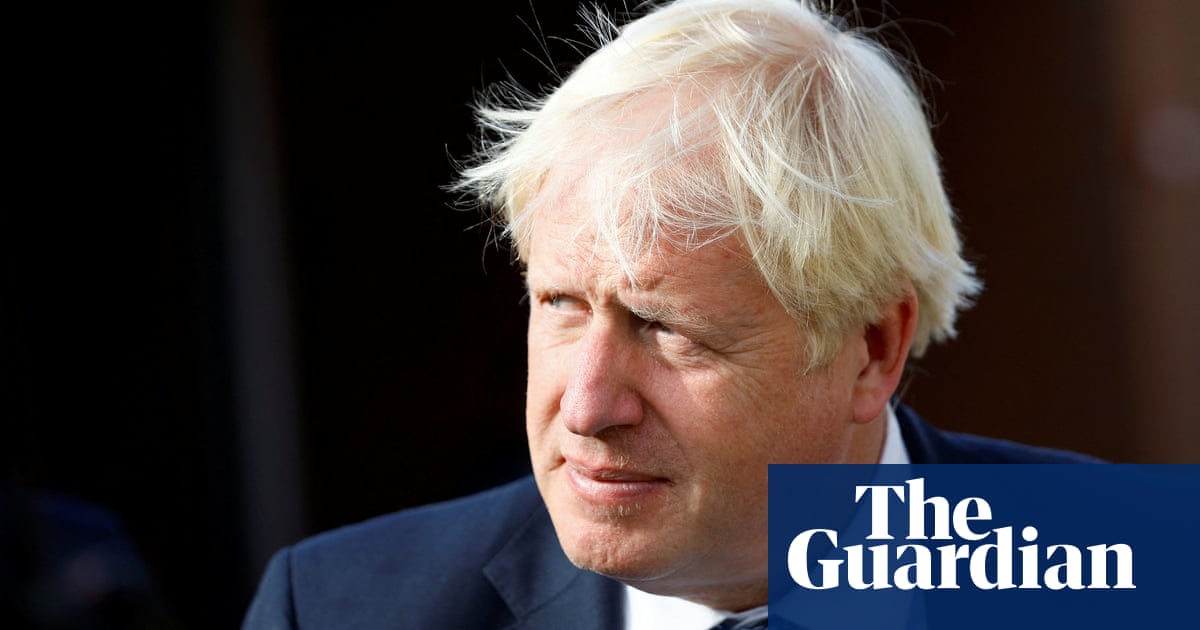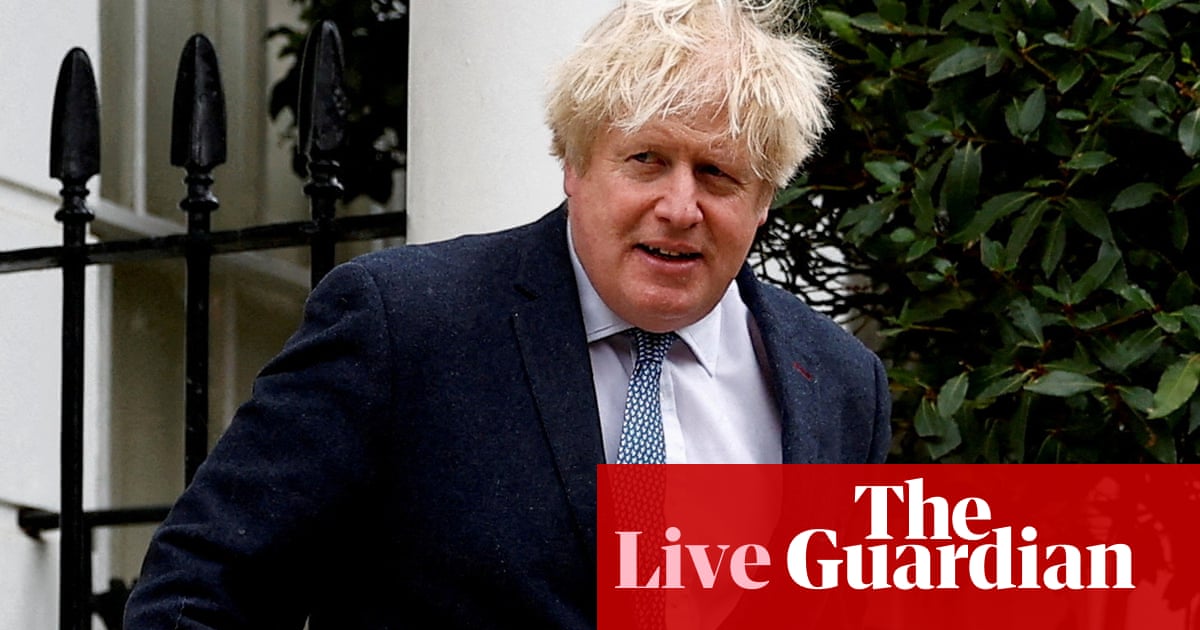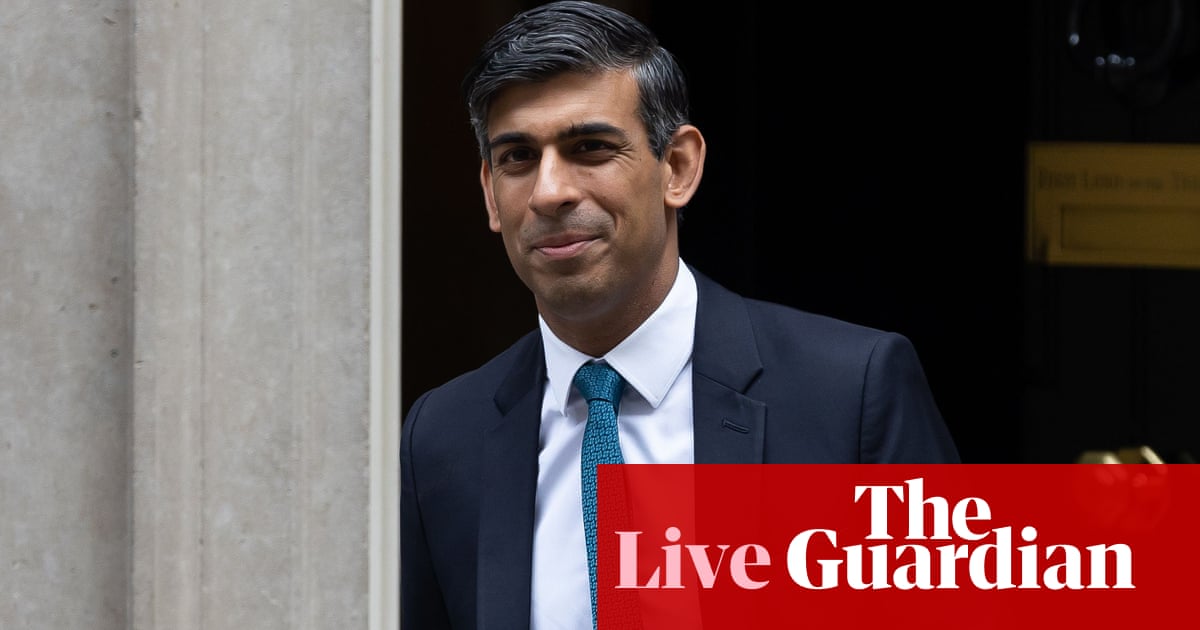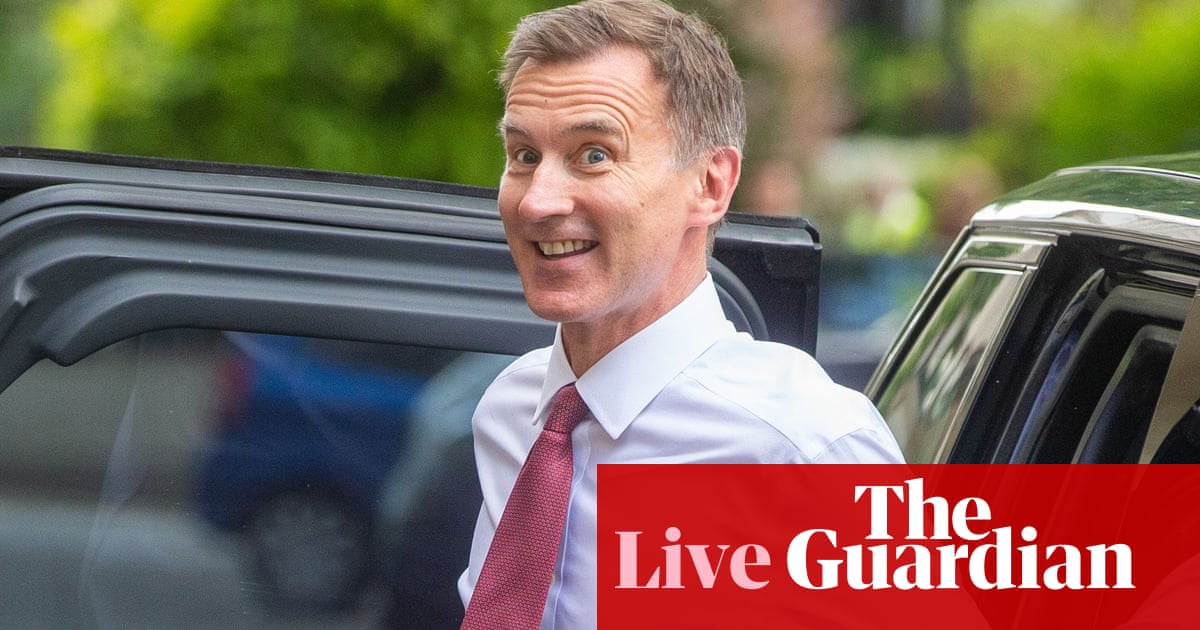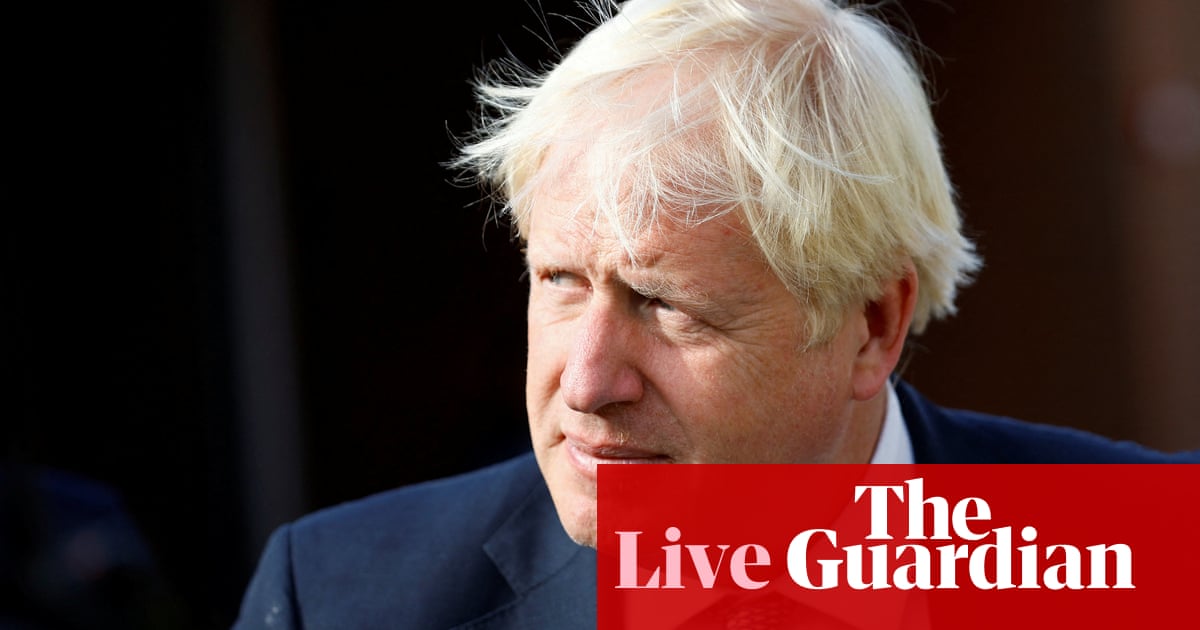
Labour says the evidence from Boris Johnson that has seemingly "gone missing" must be found
Labour has said the evidence from Boris Johnson that has seemingly “gone missing” must be found and presented to the Covid-19 inquiry to avoid the “whiff of a cover-up”.
The deputy leader, Angela Rayner, said:
The fact the Covid inquiry has invoked legal powers to compel the handover of crucial documents in the face of legal battles and delaying tactics shows this is a government with much to hide. It now appears that vital evidence has gone missing. It must be found and handed over as requested if the whiff of a cover-up is to be avoided and bereaved families are to get the answers they deserve.
She added:
It is for the Covid inquiry itself rather than Conservative ministers to decide what is and is not relevant material for its investigation, and this interference only serves to undermine the inquiry’s crucial job of getting to the truth.
Summary
As the time approaches 5pm, here’s a roundup of today’s news as the head of the Covid inquiry, Heather Hallett, said she would extend the deadline for the government to send over Boris Johnson’s WhatsApp messages and diaries to Thursday.
The government has been accused of a cover-up after telling the Covid inquiry it did not have Johnson’s pandemic notebooks and WhatsApp messages, even though government lawyers were given the material.
The Cabinet Office has been refusing to hand over unredacted versions of Johnson’s correspondence and documentation, and is now claiming to the inquiry that it does not have the WhatsApps or 24 notebooks in its possession.
The deadline was supposed to be 4pm on Tuesday, but it has been extended for 48 hours.
In an update on the Covid-19 inquiry, Hallett has said she aims to conclude public hearings by summer 2026.
Labour has said the evidence from Johnson that has seemingly “gone missing” must be found and presented to the Covid-19 inquiry to avoid the “whiff of a cover-up”.
On the story about Sunak’s potential price caps on essential foods trailed in the Telegraph at the weekend, the former M&S chair Stuart Rose, who now heads the Asda supermarket, said there would be “unintended consequences” if the proposal went ahead.
Sunak will travel to Washington next week for talks with Joe Biden where the two leaders are expected to discuss trade issues.
The Scottish minister in charge of implementing a deposit return scheme has said devolution is coming under “sustained attack” after the UK government stepped in to exclude glass from the scheme.
That’s all for today. Thanks for following along.
Some photos from the news wires, as the prime minister, Rishi Sunak, has been at a lab in Kent, and the former Labour leader Jeremy Corbyn has been addressing a picket line in London.
Downing Street’s long-running inquiry into child sexual abuse has been called “weak” and “apparently disingenuous” – with ministers accused of failing to understand the need for action.
Prof Alexis Jay, the chair of the independent inquiry into child sexual abuse, said in a letter to the Times that victims’ and survivors’ hopes will be “dashed yet again” and the “scourge of child sexual abuse will continue to increase unabated”.
Jay’s letter comes a week after the government published its official response to the inquiry’s 20 recommendations.
In the letter Jay and panel members told of “deep concern at the government’s inadequate response” to their recommendations and predicted action may be deferred indefinitely “for the sake of other political priorities”.
A Scottish minister in charge of implementing a deposit return scheme has said that devolution is coming under “sustained attack” after the UK government stepped in to exclude glass from the scheme.
Lorna Slater said that after Scotland secretary Alister Jack’s letter on Friday night, it was the latest example of Westminster ministers getting involved in devolved matters.
“When we pass laws to make lives a bit easier for trans people, the Scottish secretary steps in and blocks the legislation.
“When Scottish ministers engage with other nations to share ideas and to promote Scotland as a place to visit, to study and to invest, the UK foreign secretary issues a diktat to overseas embassies to silence and sideline them.
“And now, it is clear we cannot even introduce a recycling scheme without it being sabotaged by bad faith actors in the UK government, who never supported devolution in the first place. The Scottish secretary, whose job is supposed to be ensuring that devolution runs smoothly, seems more interested in torpedoing Scotland’s parliament than he is in protecting Scotland’s environment.”
Slater said the Conservative party was trying to “sabotage” the proposal, in a statement to the Scottish parliament in Holyrood. She added that the current proposal may not be unworkable.
Sunak to meet with Biden next week
Rishi Sunak will travel to Washington next week for talks with Joe Biden where the two leaders are expected to discuss trade issues – although the idea of a full-blown deal has fallen by the wayside since the US president replaced Donald Trump in the White House – as well as the war in Ukraine.
The prime minister’s official spokesperson said the visit would be an opportunity to build on discussions relating to economic challenges and sustained support for Ukraine as the July Nato summit approaches.
During the visit, on Wednesday and Thursday, Sunak will also meet congressional figures and US business leaders.
Although a full-blown free trade agreement (FTA) between the UK and US is not on the agenda, the government is pushing to address specific trade issues and is also seeking closer partnerships with individual states including economic powerhouses California and Texas.
“We are not seeking to pursue a free trade deal with the US currently,” the spokesperson said.
In an update on the Covid-19 inquiry, chair Heather Hallett has said she aims to conclude public hearings by summer 2026.
“Last year, I promised I would work hard to ensure the whole of the UK can learn useful lessons from the pandemic as quickly as possible,” Lady Hallett said.
“Today I am providing greater clarity on our investigations and the likely end point for the inquiry’s hearings.”
An investigation into government procurement during the pandemic will be opened as part of the inquiry. A statement added: “The inquiry is aiming to complete public hearings by summer 2026.”
Labour says the evidence from Boris Johnson that has seemingly "gone missing" must be found
Labour has said the evidence from Boris Johnson that has seemingly “gone missing” must be found and presented to the Covid-19 inquiry to avoid the “whiff of a cover-up”.
The deputy leader, Angela Rayner, said:
The fact the Covid inquiry has invoked legal powers to compel the handover of crucial documents in the face of legal battles and delaying tactics shows this is a government with much to hide. It now appears that vital evidence has gone missing. It must be found and handed over as requested if the whiff of a cover-up is to be avoided and bereaved families are to get the answers they deserve.
She added:
It is for the Covid inquiry itself rather than Conservative ministers to decide what is and is not relevant material for its investigation, and this interference only serves to undermine the inquiry’s crucial job of getting to the truth.
What is the standoff between the Covid inquiry and Cabinet Office about?
What has the inquiry asked for?
A trove of documents was requested by Heather Hallett, the chair of the public inquiry into the government’s handling of Covid.
On 28 April, she ordered the Cabinet Office to hand over all messages on the phones of Boris Johnson and a No 10 aide, Henry Cook, concerning the pandemic. These included WhatsApp messages sent from and to other senior figures in government – stretching from ministers, such as the then chancellor, Rishi Sunak, to special advisers, such as Dominic Cummings, and officials all the way up to cabinet secretary level.
Lady Hallett originally set a deadline of 12 May, but the Cabinet Office pushed back and asked her to reconsider. A new deadline was set for 4pm on 30 May, but that too has been pushed back, to 1 June.
Why did the government object?
Though Hallett specifically said she wanted the “entire contents” of the documents, the Cabinet Office disagreed with what information was deemed relevant to her inquiry.
Normally, communications between ministers – which in previous generations would have been committed to a letter or fax – stay secret. The “30-year rule” ensures that no such messages would see the light of day until long after several administrations had come and gone. It is argued that this ensures ministers and officials have the privacy to discuss and debate policies.
A public inquiry has rights to request more contemporaneous information, but it must be judged to be “potentially relevant”. The Cabinet Office disagreed with Hallett that information it redacted was relevant. It is also nervous about sharing such an extensive set of messages with a non-government body, potentially losing control of its ability to guarantee the confidentiality of the contents.
The Covid inquiry will not necessarily publish every piece of evidence it receives, however.
As selections continue to take place before the next general election, one noteworthy name who has been shortlisted as the Conservative party candidate in Selby and Ainsty is the former Financial Times Whitehall correspondent and author Sebastian Payne.
Payne, 33, left the FT to lead the Tory thinktank Onward last year, and has written books on Labour’s decline in the “red wall” seats in the 2019 election, and on Boris Johnson’s time as prime minister.
The current MP for the seat in Yorkshire is Nigel Adams who had a 20,000 majority in 2019. The seat has been in Conservative party hands since its formation in 2010.
On the story about Sunak’s potential price caps on essential foods, the former M&S chairman Stuart Rose, who now heads the Asda supermarket, said there would be “unintended consequences” if the proposal went ahead.
Lord Rose who also chaired Ocado, said “you can’t interfere in the markets” and warned of the “unintended consequences” of “relatively clumsy things”.
Speaking on a call to reporters, Rose said: “My view on this is quite simple. I’ve been involved in retail for 50 years, and there’s been all sorts of schemes being followed by all sorts of governments over time about what they think we should be doing to control the market.
“You can’t interfere in the markets, the markets will control themselves. We are a very efficient industry, not just in Asda, across the retail piece. We have kept the price of electronics and clothing and food in real terms down to levels that are unprecedented in terms of our ability to be efficient.
“So, you know, I think we do a very, very good job for consumers, and if the government wants to start doing - in inverted commas - ‘relatively clumsy things’, they need to be careful about the unintended consequences of what they want to do. Let the shopkeepers do what they do well: shop keep.”
The British Retail Consortium (BRC) has said the measures would not make a “jot of difference” to pricing and warned they could thwart efforts to cut inflation.
The opt-in scheme, modelled on a similar agreement in France, would allow supermarkets to select which items they would cap, the Sunday Telegraph reported.




